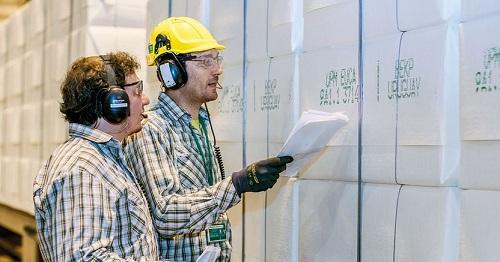
A year ago UPM and the government of Uruguay signed an investment agreement which outlines the local prerequisites for a potential pulp mill. The agreement details the roles, commitments and timeline for both parties as well as the relevant items to be agreed prior to the final investment decision. Currently UPM is carrying out technical studies and applying for the necessary permits.
“A pulp mill investment of this scale requires efficient logistics to enable secure wood supply and pulp deliveries from the inland mill to the port of Montevideo. This will require the construction of a modern railway to the port and a modern pulp terminal as well as development of the road network,” says Petri Hakanen, Senior Vice President of the UPM Uruguay Development Project.
The new railway would provide transport opportunities not only for forestry but also for other businesses like grain and wooden products, while also increasing Uruguay’s export competitiveness worldwide.
The new pulp mill would have various positive impacts on Uruguay, providing the community with jobs, training and improved infrastructure. The mill’s location is in the least developed area of the country, potentially providing a major spur for rapid regional development similar to the earlier example of Fray Bentos.
The new pulp mill is estimated to increase GDP by 2%. It would boost the local economy and fuel the growth of hundreds of small and medium sized companies throughout the entire value chain. It would also generate a significant number of permanent jobs in industry, plantations, harvesting, port operations and related services.